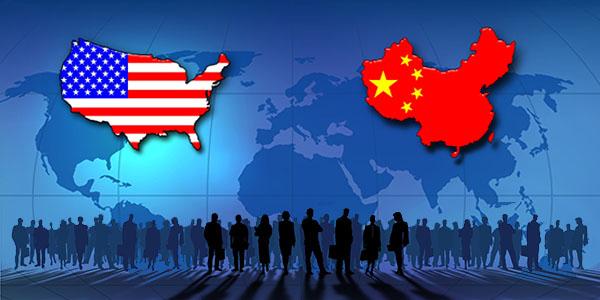Core Issues Drive China's Global Activities
China is steadily pursuing its global goals based on a series of core issues that are not likely to be affected by international actions, said a panel of experts. The United States must take bipartisan actions to boost its own standing relative to China, even if the upcoming election results in a change of parties in the White House come January 2021.
These were among many points introduced by experts in a breakout session during the second day of the AFCEA/INSA Intelligence and National Security Summit being held online September 16-18. They assessed China’s activities in and against the United States and recommended some actions to be taken by U.S. leaders.
Dean Cheng, senior research fellow, Asian Studies Center, Heritage Foundation, explained how China’s core interests are the overriding functions for China to be China. The first is for the Chinese Communist Party to remain in power. The second focuses on territorial integrity and national sovereignty, especially with Hong Kong and Taiwan, and the third is economic development.
One key point is that Asia is not Europe. It has never been marked by balance of power politics. Europe, on the other hand, has seen grand alliances of great powers form to combat a dictator such as Napoleon, Hitler or Stalin. Asia only had one great power: the Middle Kingdom, surrounded by peripheral states.
A key factor for China: Asia is not Europe. It has never been defined by balance of power politics. It only had one power: the Middle Kingdom.—Dean Cheng, senior research fellow Asian Studies Center, Heritage Foundation #intelsummit20
— Bob Ackerman (@rkackerman) September 17, 2020
The growth of information lies at the heart of China’s plans, Cheng said. “The Chinese see us now as living in the information age,” he observed. “The currency of power is now the ability to generate information, move information, analyze information and export information.”
Information is one of its main goals in the United States, and Jay Bratt, chief, Counterintelligence and Export Control Section, U.S. Justice Department, described efforts to stop the purloining of U.S. military and trade secrets. “We are seeing more Chinese cyber intrusions to exfiltrate secret data, especially in the aerospace industry,” he reported, describing how his organization recently identified and indicted Chinese agents in the United States.
We are seeing more Chinese cyber intrusions to exfiltrate secret data, especially in the aerospace industry.—Jay Bratt, chief, CI and Export Control Section, U.S. Justice Department #intelsummit20
— Bob Ackerman (@rkackerman) September 17, 2020
China also is playing a significant role in helping cash-short North Korea, Bratt continued. Chinese front companies have engaged in transactions on behalf of North Korea.
The Middle Kingdom’s strategic actions pose challenges around the globe and in space. Cheng noted that its interactions with neighbors often involve U.S. allies, but a new area of concern is India. While not formally allied with the United States, India is a nuclear power confronting another nuclear power, and border clashes have led to fatalities. Cheng also pointed out that China sees space as a strategic domain, and the United States views space as essential to its own way of warfare. The result is a growing competition there.
“What we are seeing are traditional terrestrial issues, but also in the new domains of space and cyber in particular, we are seeing more and more competition friction between these two great powers,” he stated.
China sees space as a key strategic domain.—Dean Cheng, senior research fellow Asian Studies Center, Heritage Foundation #intelsummit20
— Bob Ackerman (@rkackerman) September 17, 2020
Panelists also discussed the direction that the U.S. government might take if the November election results in a new administration. Some panelists predicted that a Biden administration might soften the U.S. stance against Chinese aggression, given some past statements made by the candidate. However, no clear consensus emerged, with some saying that Vice President Biden’s past statements might not be applicable if he assumes the presidency.
One point floated was that a bipartisan agreement might be brewing in Congress to confront China on its human rights violations, which have become steadily more severe. Other issues such as the supply chain also could draw bipartisan action, panelists said.




Comments